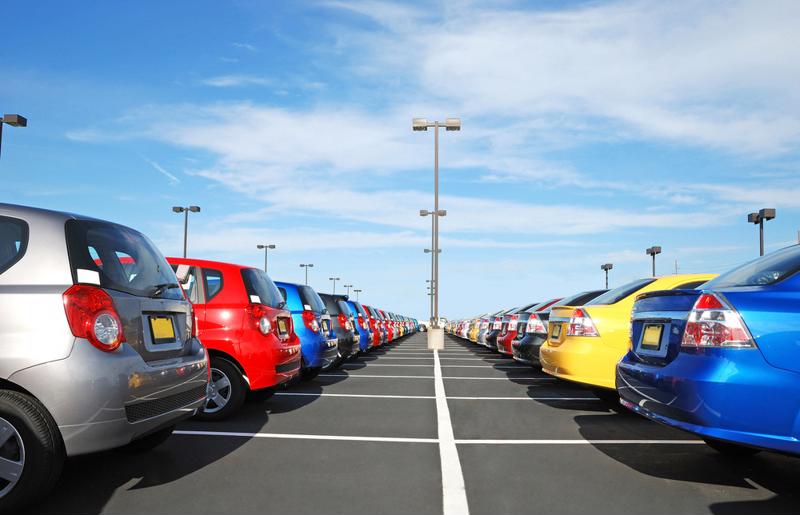Digitization is having a disruptive impact in many industries, but the changes coming in the automotive retail sector are especially staggering. Automotive sales processes have followed fairly conservative, longstanding traditions for years. People come into the dealership, walk around with a sales representative, test drive vehicles, sit down and talk over some details while the sales worker takes notes and wait to see what managers think.
"Car buyers increasingly expect a more intuitive, streamlined sales experience."
If managers are behind the deal that the sales representative is offered, the visitors wait until a financing executive is available, and then sit back while the individual communicates with banks, prints out complex contracts and asks everybody to sign on many dotted lines. Car buyers increasingly expect a more intuitive, streamlined sales experience, and a recent Frost & Sullivan study explained that digitization is the vehicle bringing the auto retail sector up to speed.
Looking at digitization's impact on auto retail
Going digital in auto retail is about more than just giving your sales associates tablets and letting them handle some financing responsibilities. The study found that consumers are going to heighten their interest in purchasing cars through entirely digital means, making tools like digital showrooms, online service booking and digital experience centers essential. As auto retailers embrace digitization, the news source predicted that lead conversion ratios will improve by approximately 80 percent in the years following 2020.
This move toward digitization is fostering clear silos within the auto retail segment. Moving forward, the study explained that retail models will shift to focus on three distinct customer engagement touch points - test-drive centers, service centers and delivery centers. These three distinct models will work from a hub-and-spoke model to give consumers an end-to-end experience that supports digital purchasing methods. This methodology could be in place as early as 2016.
 Purchasing cars is quickly turning into a digital experience.
Purchasing cars is quickly turning into a digital experience.Responding to the need for digitization
If you're going to go digital, you need application platforms, process management software and collaboration tools that allow your organization to operate as a single entity even if the customer experience is siloed into distinct digital and brick-and-mortar storefronts.
Business process management tools are emerging as a prime option for businesses trying to adapt to this new digital landscape. They can serve as an application development hub, giving users the ability to customize apps and services to meet their specific demands. When it comes to auto retail, BPM solutions can also be used to automate communication processes between stakeholders in different components of the organization, ensuring customers get a cohesive, streamlined experience in every phase of the sales process.
Appian is a software company that orchestrates business processes. The Appian AI Process Platform includes everything you need to design, automate, and optimize even the most complex processes, from start to finish. The world's most innovative organizations trust Appian to improve their workflows, unify data, and optimize operations—resulting in better growth and superior customer experiences.
- Gartner® Quick Answer: Beyond RPA, BPA, and Low Code - The Future is BOAT
- Gartner® Magic Quadrant for Process Mining 2024
- Gartner® Low-Code Magic Quadrant™ 2023
- Forrester DPA Wave 2023: Digital Process Automation Software
- Gartner® Critical Capabilities for Enterprise Low-Code Application Platforms (LCAP)
- Forrester Total Economic Impact™ (TEI) of Appian 2023 - 95% Faster Processes
- Everest Group PEAK Matrix® - Process Orchestration 2023
- Appian Ranked by Gartner #1 for Business Workflow Automation with Integration Use Case in Low-Code Report
- Appian named a leader in the 2023 Gartner Magic Quadrant for Enterprise Low-Code Application Platforms
- AON Transforms Reinsurance Claims Processing with Appian
- Appian AI Copilot Delivers Practical Value to Boost Developer Productivity
- Appian Opens New APAC Headquarters in Sydney
- New Appian Platform Democratizes A.I. for Process Automation
- Appian Awarded $2.036 Billion in Lawsuit Against Pegasystems
- Generative AI vs LLMs: What's the Difference?
- AI Process Automation: 4 Predictions for the Age of AI
- Why Data Silos Are Problematic
- Generative AI For Insurance
- Public vs Private AI Explained
- How to Use AI Process Optimization
- Procurement vs Acquisition: What's the Difference?
- 7 Hyperautomation Trends to Watch
- Data Fabric's 5 Key Benefits
- KYC Process: The Complete Guide
- What is a Continuous Improvement Process & How to Implement It
- How to Optimize the Government Procurement Process
- AI/ML Use Cases: 7 Examples to Watch
- How to Align Process Mining w/ Process Automation to Drive Continuous Process Improvement [On-Demand Webinar]
- Eliminate Data Silos with an Integrated Data Fabric [On-Demand Video]
- Creating a Connected Care Enterprise [On-Demand Webinar]
- Transforming Institutional Onboarding [On-Demand Webinar]
- [On-Demand Webinar] Hyperautomation at Hyperspeed